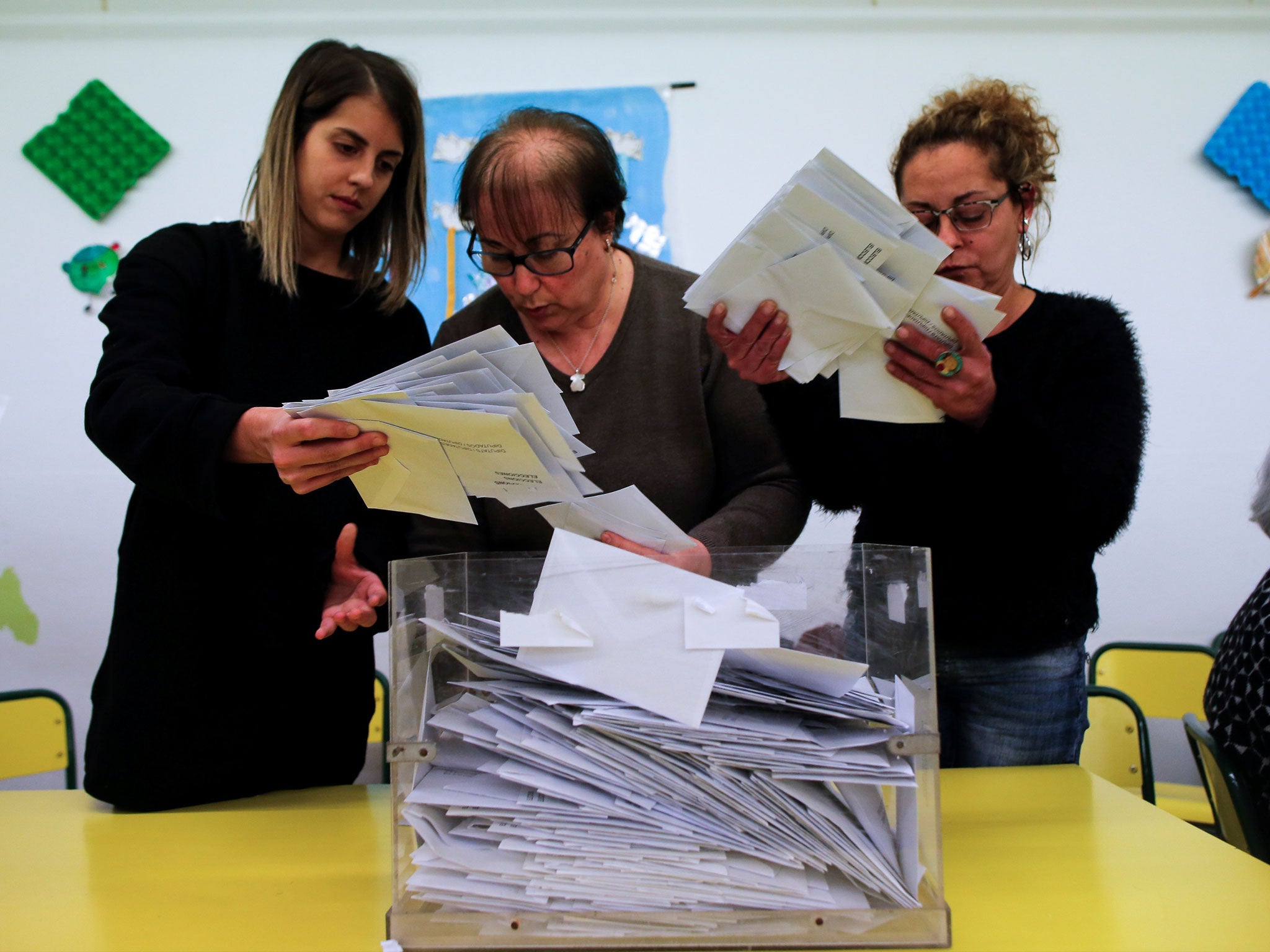Catalonia election: Exit polls see pro-independence parties winning small majority
Commentators warn poll should be treated with caution, but if accurate, the result could deepen Catalan political crisis

An unofficial exit poll in Catalonia's regional election suggests a coalition of pro-independence parties have secured a small majority, Spanish media reports.
Although commentators warned the poll should be treated with caution, if it proves accurate, the result could open up a new and uncertain chapter in the Catalan political crisis following the disputed independence referendum.
The separatist parties are predicted to win 67-71 seats in the 135-seat assembly, the poll showed, with the unionist bloc set to take 55 to 62 seats and the local offshoot of anti-austerity party Podemos taking seven or eight seats.
Published by La Vanguardia newspaper, the poll casts serious doubt over the ability of the Spanish Prime Minister Mariano Rajoy to unite the country following the Catalan referendum in October. He had hoped the election would return the country to what he called "normality" under a unionist government or with a separatist government that will not seek a unilateral split.
The crisis has damaged Spain's economy and prompted a mass exodus of businesses from Catalonia, which has long been the country's economic powerhouse.
The regional election is regarded as an indication of how support for the independence movement has fared since the regional government was sacked by Mr Rajoy following the referendum, which was not legally recognised.
Deposed Catalan President Carles Puigdemont urged voters to show they back independence by voting him back into office.
Mr Puigdemont is attempting to win back the Catalan regional presidency just two months after he fled to Brussels rather than face police questioning on suspicion of rebellion and sedition, among other possible crimes. He was able to run for election because Spanish law is only able to bar someone from standing if they have criminal convictions.
The exiled politician was hoping that a win at the polls would pile pressure on Spain to allow him to avoid prison if he returns to his homeland.
The turnout was at a record high for the regional election with over 83 per cent of eligible Catalans turning out to have their say at the ballot box.
In contrast to the violence that boiled over on the streets of Spain during October's referendum, the regional election passed off peacefully.
The exit poll contradicts final pre-election surveys that predicted the separatist parties would lose control of the regional parliament and running neck-and-neck with unionists. If it proves correct, weeks of haggling between parties attempting to form workable coalitions could ensue, although an effective separatist government would be the most likely outcome.
At pro-independence rallies around Barcelona, supporters awaiting the results were tentatively celebrating.
“These elections are the closest we'll ever get to a referendum,” said Joan Garcia, a 28-year-old computer programmer watching the results come in on a giant screen at one event.
“If the independence parties win, the Spanish government will have to listen to us.”
The first official preliminary results are expected by 9pm and final results after midnight.
Additional reporting by Reuters
Join our commenting forum
Join thought-provoking conversations, follow other Independent readers and see their replies
Comments
Bookmark popover
Removed from bookmarks